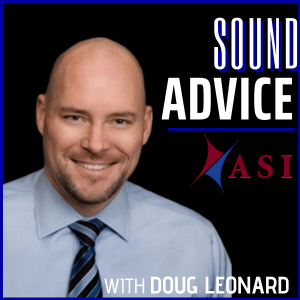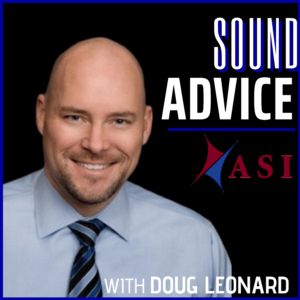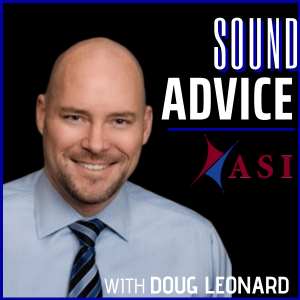Join us on an enlightening journey as we explore the evolving landscape of hearing aids. Discussing a Wall Street Journal article, our conversation with Doug Leonard unmasks the false promise of revolutionary over-the-counter hearing devices. Uncover the nuanced reality of hearing care, the benefits of professional guidance, and why personalized solutions remain unbeaten in achieving optimal hearing health.
It's the revolution that wasn't. That's what we're going to talk about today on ASI's Sound Advice with Doug Leonard from Audiological Services of Iowa. Wall Street Journal article on your Facebook page talking about the revolution that wasn't. In other words, sometimes those over-the-counter hearing aids just don't do the job.
Yeah, I mean, it was explaining what we found out now a few years after this over-the-counter law passed. The principle behind passing the Over-the-Counter Hearing Aid Act, I guess, is, of course, affordability and access. And those are important, especially with the way the economy is these days. You know, we all, to a certain extent, live on fixed incomes and fixed budgets and have to consider expenses, certainly with the rising cost of everything. And hearing care is no different with that. You know, I think when you actually break down what you get from a set of hearing aids and amateurize it over the lifespan of the hearing aids, I think it's actually not as unaffordable as people really think it is. But the idea of over-the-counter hearing aids is maybe more people will be able to get them. You know, they've actually had over-the-counter devices forever. You know, 25 years ago, there was a company called Songbird, and every audiologist who was fitting hearing aids at the time was concerned that that was going to take a big chunk out of their market, and it never did then. And, you know, the over-the-counter thing now has not either. It is a concern, but we found out that really people, the satisfaction with a lot of the devices that people are purchasing themselves and trying to set up themselves and even, you know, evaluate their own hearing haven't been as successful as what they were reported to be.
Now, why is that? Because they're just simply amplifiers?
Well, there are some that are technically classified as hearing aids. I mean, the FDA governs hearing aids, and they are supposedly prescriptive. Apple AirPods, for example, certain models of those you can do a rudimentary evaluation of your own hearing. I had a patient recently who came in who I've seen several years for work screenings, works in a noisy environment and has had hearing evaluations for about five or six years. And we started to notice that he was having a problem with one of his ears. And he has a mild to moderate hearing loss unilaterally in one ear. So I encourage him to go see an ear, nose and throat physician. That physician diagnosed it as a problem called otosclerosis, which is a hardening of the bones in the ear. And it's a mild enough hearing loss at this point that the physician didn't encourage him to do a surgery. Eventually, it might be something that gets worse and he could have, you know, an intervention and a surgery for it. And so he actually mentioned to me that he uses an AirPod in that bad ear. It works for him in certain environments because number one, he's tech savvy. He knows how to set that up on his iPhone. He knows how to work with an app and those things. And it also works in a limited fashion. You know, I think when he's in meetings, he will use that because, you know, he's just not picking things up from the one side. So there are folks that that can help. But again, it's really for mild to moderate hearing loss and limited environments.
But hearing aids, man, they're little computers that can adjust to so many different environments and help you out tremendously. To know the difference, you've got to come in and have a discussion with Doug or the folks at ASI. So, Doug, what's the number here in Carroll so they can come in and get their hearing tested or ask any questions they have? Yeah, we'd love to see them during Better Hearing Month. So the number here is 792-5933. Better Hearing Month. This month, a great time to set up that hearing screening with ASI, Audiological Services of Iowa.



